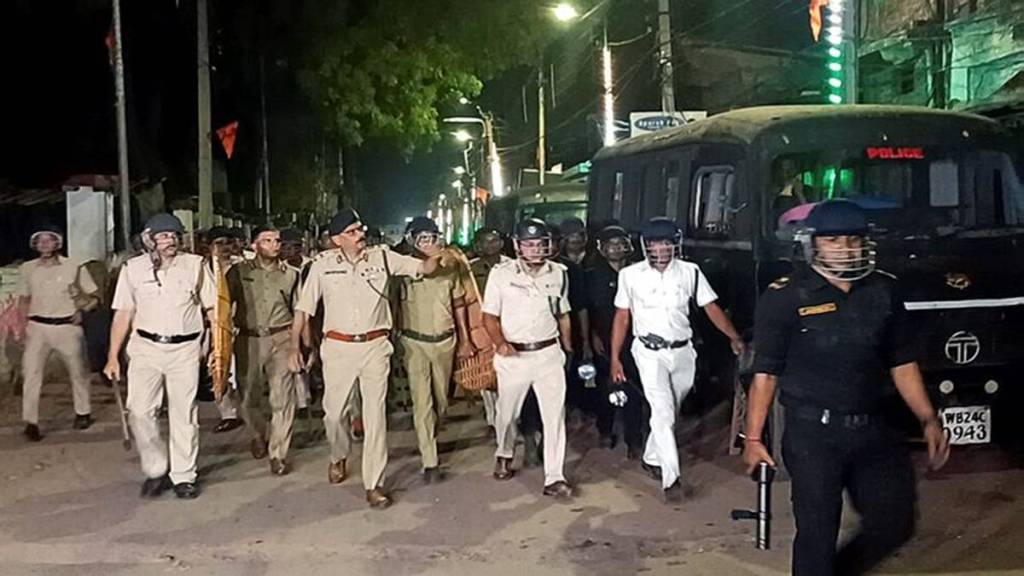Violence in West Bengal’s Murshidabad district, triggered by protests over the amended Waqf Act, has led to the deployment of Border Security Force (BSF) personnel to assist in maintaining local law enforcement. On Saturday, BSF confirmed that five of its companies had been sent to support the police in controlling the situation, as per a report by ANI.
Inspector General of South Bengal Frontier, Karni Singh Shekhawat, confirmed that BSF forces are working along with the state police and are ready to send more personnel if there is a requirement. ”We are here to help the police. We are not acting independently. Our deployment is based on their request,” Shekhawat told while addressing reporters after visiting the affected area. ”We hope the situation returns to normal soon,” he added.
The decision to deploy the BSF occurred quickly after the Calcutta High Court ordered immediate intervention by Central forces. Amid escalating unrest in Murshidabad, a special bench of the court has ordered this directive. As per the latest report, at least three people have lost their lives during the ongoing clashes related to the new Waqf law.
The court decision has been welcomed by the West Bengal Governor. He shared his concern related to deteriorating law and order. ”I am glad the High Court stepped in and made the right call”, he stated.
The court’s order came after a petition was filed by Suvendu Adhikari, the Leader of Opposition in the West Bengal Assembly. His advocate, Anish Mukherjee, highlighted in court that the violence has been growing without being checked, especially in Murshidabad.
The High Court has also ordered both the state and central governments to submit a detailed report related to the violence. The case will be taken up for further hearing on April 17.
The unrest has originated from the recently passed Waqf (Amendment) Act, 2025, which came into effect on April 8. The Act was approved in the Upper House and received 128 votes in favour, and 95 were against it. Protestors have turned violent in parts of the state.
(With inputs from ANI)


